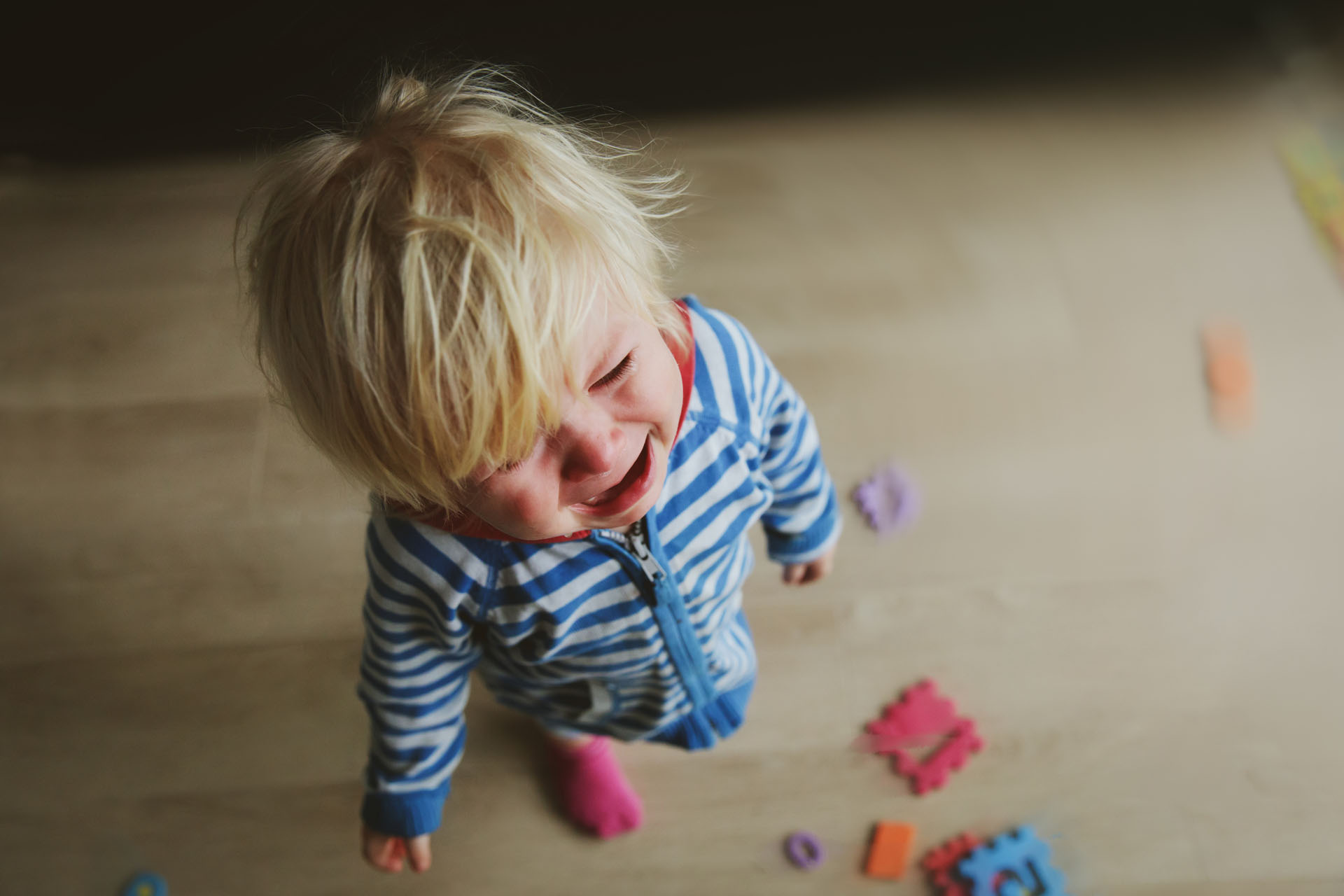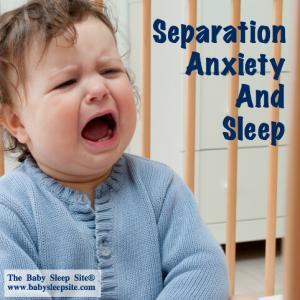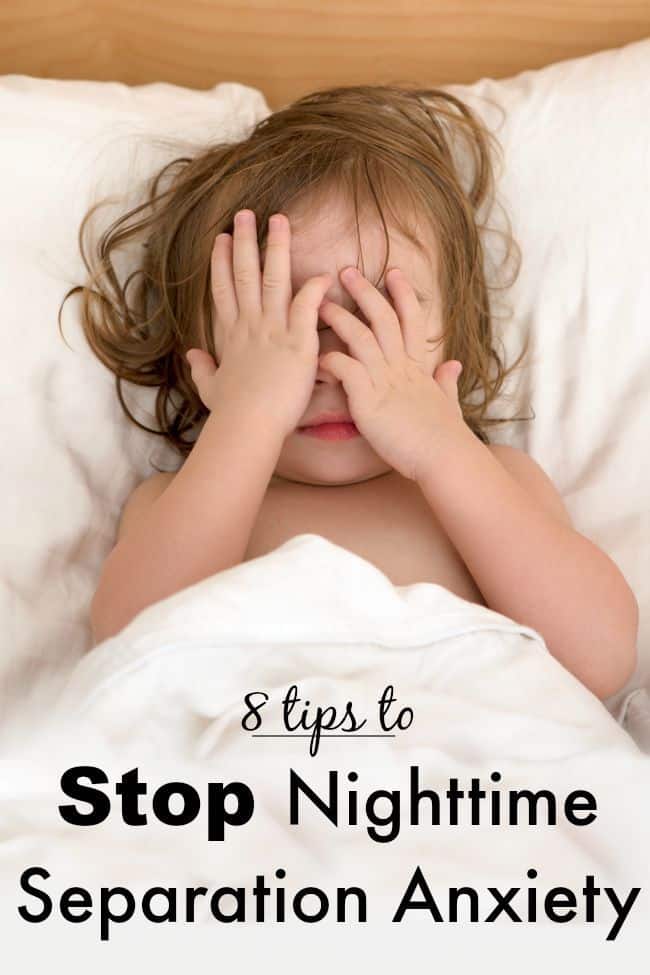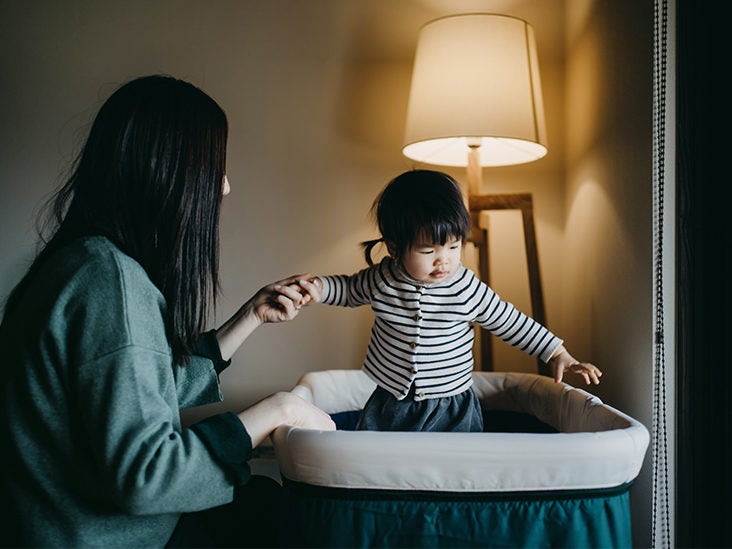Separation anxiety develops after a child gains an understanding of object permanence. Yes to a degree.
 Age By Age Guide To Coping With Separation Anxiety Parentscanada
Age By Age Guide To Coping With Separation Anxiety Parentscanada
But the symptoms of SAD are more severe.

Separation anxiety in babies. Prior to that they dont see you or another caregiver as separate from themselves so theyre easy peasy with just about everyone. Separation anxiety is just part of your babys development. Separation anxiety in babies is an absolutely normal and healthy phase of child development.
Theyre in the process of learning about object permanence which means that they understand that something continues to exist even if they cant see it. Childrens brains arent mature enough yet to rationalize fearful and distressing emotions. Separation anxiety in infants often starts between 8 and 14 months old.
Separation anxiety can start at around 8 months and reach its peak in babies aged 14-18 months. This is called object permanence. Its a fancy term that basically means your baby knows that objects and people like yourself exist even if theyre not in the room or close by.
When does separation anxiety in babies start. Separation anxiety is actually normal and experts have found that it starts when your child is around nine months old and all the way to when they turn 14 to 18 months. Babies and toddlers often get clingy and cry if you or their other carers leave them even for a short time.
Separation anxiety and fear of strangers is common in young children between the ages of 6 months and 3 years but its a normal part of your childs development and they usually grow out of it. Many children will experience several phases of it before they. Separation anxiety is a normal stage of development for infants and toddlers.
These anxieties gradually. What is separation anxiety in children. They dont yet have the cognitive abilities to cope with them.
Young children often experience a period of separation anxiety but most children outgrow separation anxiety by about 3 years of age. Separation anxiety is a normal part of development for children. Separation anxiety refers to a developmental milestone that occurs in most babies between 6 to 7 months of age when they gain sense of object permanence.
Separation anxiety is childrens common and normal fear of being away from their parents or carers. At certain stages most babies or toddlers will show true anxiety and become upset at the prospect or reality of being separated from a parent. It can rear its head when youre dropping your baby off at daycareor when youre simply going to the bathroom.
The disturbance is not better explained by another mental disorder such as refusing to leave home because of. Read on to learn more about separation anxiety in infants and how you can handle it like a champ. The fear anxiety or avoidance is persistent lasting at least 4 weeks in children and adolescents and typically 6 months or more in adults.
It will lessen and pass. Nearly all children between the ages of 18 months and 3 years old have separation anxiety and are clingy to some degree. First things first what is separation anxiety.
Kids often go through a phase when theyre clingy and afraid of unfamiliar people and places. A child must have symptoms of SAD for at least 4 weeks. According to the American Academy of Pediatrics AAP most babies experience a robust separation anxiety around 9 months of age.
Each baby is different but typical baby separation anxiety is said to occur somewhere between 7-18 months and last about 2-5 months. When Does Separation Anxiety Start. They suddenly understand that you can leave but dont realize that youll come back and feel worried.
Separation anxiety is normal in very young children. We know what youre thinking. Although some babies display object permanence and separation anxiety as early as 4 to 5 months of age most develop more robust separation anxiety at around 9.
All children and teens feel some anxiety. Disturbances causes clinically significant distress or impairment in social academic occupational or other important areas of functioning. Separation anxiety is a normal stage of emotional development that starts when babies begin to understand that things and people exist even when theyre not present a concept called object permanence.
Separation anxiety is normal in very young children those between 8 and 14 months old. It typically develops by 8 to 12 months and usually ends for toddlers around ages 2 or 3 Loftin says. Even well-adjusted babies experience separation anxiety and most babies also experience fears during the night.
Separation anxiety most commonly occurs at night as the fear of being left alone and expected to fall asleep affects most babies and toddlers and even some adults. It usually goes away gradually throughout early childhood. Thats because between 4 and 7 months babies begin to realize that people and objects exist even when they cant see them.
For many babies separation anxiety starts at around 8 months of age but you may start seeing indications of separation anxiety in your baby as early as 4 months. Once your infant realizes youre really gone when you are it may leave him unsettled. It is a normal part of growing up.
It typically occurs in most babies between 6 to 8 months old when they realize that they are independent of you. Separation anxiety in your baby starts basically because theyre getting smarter. The Good News about Baby Separation Anxiety Its a positive healthy sign.
Its most common with babies and toddlers but can also be experienced by teenagers transitioning to high school or those leaving for college. A fearful baby may need your help to soothe and calm them. According to the experts at Calm Clinic parents should do their best to not respond to their child if they are crying in the night for no reason.
The behaviour you might see when children are separated from parents is sometimes called separation protest.
Keep your goodbyes brief. Separation anxiety is one of the most common sleep disruptors so developing a plan to handle it and making sure your spouse is on the same page can create some consistency in your childs routine and help them feel more comfortable.
 How To Handle Baby Or Toddler S Separation Anxiety Sleep Issues
How To Handle Baby Or Toddler S Separation Anxiety Sleep Issues
In time this separation anxiety will pass and bedtime struggles will become a memory.

Separation anxiety toddler sleep. Fortunately you can prevent sleep problems at night during separation anxiety phases with a few simple ideas and techniques right below. However if the anxiety persists and starts to interfere with daily activities such as school and playtime there might be something larger at work. This is a no rmal stage in childrens emotional.
And it may be even harder to deal with the naptime and bedtime drama this time around since your toddlers separation anxiety will often manifest as full-blown temper tantrums. However some studies like Sleep Problems and Separation Anxiety in Preschool-Aged Children. It goes something like this.
It may not make the phase go faster but it will ensure that it wont last longer. The words separation anxiety are often used during the early toddler years. Well thats a tricky one.
Follow these tips to help banish your little ones worries. Separation anxiety is a major contributor to sleeping problems in toddlers. Separation anxiety and fear Toddler night waking is commonly due to separation anxiety.
Separation anxiety is known to be the most common cause of sleep anxiety in children because most children fear of being alone by themselves without their parent or guardian being with them. Learn how you can support your little one and maintain healthy sleep habits. As frustrating as this may be its an important step in your babys development.
Consult your pediatrician if you notice physical symptoms that manifest in anticipation of separation including stomachaches headaches and dizziness. Separation anxiety in older babies and toddlers is normal and a good sign because they are at a point where they are forming bonds with their parents or caregivers. Your baby may begin waking several times at night crying or refusing to settle down for sleep.
Not only does this affect your toddler going to sleep but there are also other signs of separation anxiety in toddlers such as the following sleep disturbances. Some separation anxiety is normal but its best for parents to avoid reinforcing it. A toddler who once transitioned to a nanny or daycare setting with ease screams and cries when the caregiver leaves.
During this phase of emotional development your baby may get up several times during the night and cry for you or your partner. Babys new-found understanding of object permanence leads to a different response when you leave the room compared to the previous months before. Baby separation anxiety is an often unrecognized cause of disturbed sleep.
Your child refuses to settle at night or for naps stops sleeping through the night often wakes up crying cant self-soothe anymore etc. Separation anxiety in toddlers sleep can be a difficult thing to overcome especially because by bedtime everyone in the house is tired and probably lacking some patience. During this stage which can last for several months a child may wake several times and cry anxiously for one or both parents often expressing a strong preference for one.
But the period of extreme neediness usually peaks between 10 and 18 months and eases by 2 years. A Path Analysis suggest that sleep disruption is also caused due to separation anxiety. Just as it did in infancy separation anxiety can really wreck your toddlers sleep and sleep training your toddler.
But first a quick look at what it is and how to spot it. Sometimes I see separation anxiety also pop up at bedtime. You put your baby in bed as you have been for months.
Separation anxiety can lead to disrupted sleep. Separation anxiety in toddlers may last months or years but theres plenty you can do to ease symptoms. Separation anxiety tends to wax and wane throughout the toddler years.
Waking up multiple times during the night Waking up crying in the morning They want to sleep in your bed every night. Another reason could be bullying by school kids or any other disturbing thoughts related to pressure at school or any other outside influence which may make them feel as if they are stuck in this trouble forever. Beginning in the second half of the first year separation anxiety can cause many nights with disrupted sleep.
As toddlers become more aware of their surroundings and begin to understand the world around them they struggle to separate from caregivers. She should be fully out of it by age 3. Separation anxiety and sleep.
You may or may not have experienced separation anxiety in sleep when your toddler was an infant. In fact episodes of separation anxiety usually effect sleep as well as who your child chooses to spend her time with. It can make them resistant to going to bed cry out once they are in bed or fail to get back to sleep if they wake up in the night.
Learn about sleep separation anxiety in babies toddlers. When our toddlers wake up in the middle of the night it almost always ends up with them coming over to the master bedroom to sleep with mom and dad. Its common during these times of distress for your baby to express a preference for one parent over the other.
Having a babysitter could also help them cope with their separation anxiety. Below we provide guidance on dealing with separation anxiety in your foster family.
 How To Deal With Separation Anxiety In Babies
How To Deal With Separation Anxiety In Babies
A dog trainer or a veterinary behaviorist will be your best resource in creating a behavior modification program that suits your dogs needs.

How to handle separation anxiety. It would help tell your childs care centre or babysitter beforehand about their anxieties so that they could do their. Once your infant realizes youre really gone when you are it may leave him unsettled. When symptoms continue into late childhood your child may be diagnosed as having.
Never scold the child tell them theyre acting like a baby or need to be big boy or big girl or minimize their feelings in other ways. But there are steps you can take to minimize the impact of parents walking out the door. They may start to get nervous when they see signs youre about to leave like putting on your shoes or picking up your keys.
According to Holy Cross Services there are things you can do to alleviate its impact and ensure the child feels safe cared for and secure. Separation anxiety disorder is the most common anxiety disorder in children ages 12 and younger and symptoms can emerge as early as age 2. How to handle separation anxiety in fostering.
Stay positive and supportive at all times. Although some babies display object permanence and separation anxiety as early as 4 to 5 months of age most develop more robust separation anxiety at around 9. Separation anxiety is a regular part of development for children between the age of six months to three years.
How to deal with separation anxiety Like most phases this is something you just have to ride out but there are some things you can do to help you and your baby get through it and feel better. Youll need to slowly get them used to your absence. The causes arent entirely clear.
To make separation less of a shock play peekaboo to reinforce the notion that youll always return. Tips for separation anxiety Dr Angharad Rudkin a clinical psychologist has these tips to help you. Childhood Separation Procedures The same treatments that help children with separation anxiety may help adults as well.
If youre wondering how to deal with separation anxiety from your spouse boyfriend girlfriend etc one of the best cures is to spend time with other loved ones. ASA can benefit from cognitive behavioral therapy as well as systematic desensitization - learning to be alone in a way that is calming and better for mental health. Vary the topics - how their day was what they did funny anecdotes - this all helps to keep their mind away from the separation anxiety.
You can also send stuffed animals or dolls on little journeys and then. Separation anxiety develops after a child gains an understanding of object permanence. Separation anxiety at naptime bedtime and nighttime wakings is pretty common says Carrie Prowse a child sleep consultant at.
Set up some paints colouring books a kids DVDTV programme something fun to keep them occupied. Having a babysitter could also help them cope with their separation anxiety. How Babysitters Can Deal with Separation Anxiety Watching a child crying and throwing a tantrum because of separation anxiety can be a heart-wrenching experience for parents and babysitters alike.
Change Your Going Away Signals Use a different door put your coat on but dont leave for 15 minutes leave your keyspurseshoes in a different location. So do those things. Practise short separations from your baby to begin with You could start by leaving them in someone elses care for a few minutes while you nip to the local shop.
It would also help tell your childs care centre or babysitter beforehand about their anxieties so that they could do. Separation anxiety can be frustrating as a parent or caregiver but getting upset will not help matters. Dont forget about those.
Here is a list of 10 dog calming treatments. The best way to help your dog deal with separation anxiety is to permanently change his perception of what being alone meansone second at a time. Research shows that there is a right and a wrong way to handle separation anxiety episodes and there are distinct signs that indicate when parents should seek medical help.
7 Leave them lots of activities to do during the day. Genetics play a role if one or both parents have an anxiety disorder of any kind their children are more likely to have separation anxiety disorder.
Waking up crying in the morning. But the symptoms of SAD are more severe.
 How To Handle Separation Anxiety Meltdowns In Kids The New York Times
How To Handle Separation Anxiety Meltdowns In Kids The New York Times
This can be when you leave her with another carer but just as much when you go from one room to the other in your home.

8 year old separation anxiety bedtime. But there are symptoms of separation anxiety disorderwhich can vary depending on a childs age. What you need is to understand separation anxiety in toddlers at bedtime. It is a normal part of growing up.
Then as we settled into a new life with new routines her separation anxiety went away. If your child already goes to daycare theyve had plenty of practice but this is especially valuable for stay at home parents. The fear anxiety or avoidance is persistent lasting at least 4 weeks in children and adolescents and typically 6 months or more in adults.
Waking up multiple times during the night. Children with Separation Anxiety Disorder tend to shadow parents around the house have difficulty playing or being alone and have difficulty at bedtime. Nighttime separation anxiety is basically just a fear of being alone at night away from the parents.
Nearly all children between the ages of 18 months and 3 years old have separation anxiety and are clingy to some degree. Bedtime fears and sleep anxiety At some point in childhood most children experience a fear of the dark or going to bed at night. That said the intensity of this normal anxiety differs depending on the childs temperament and on how responsive her caregivers have been to the childs need for comfort and closeness.
Dont give into whining about dont leave or sleep with me all night. Practice leaving during the day. Your child resists going to school camp or play dates without you there.
In this post we cover that topic. In fact separation anxiety can be one of the major factors involved in the 8910 month sleep regression. If your childs separation anxiety continues to persist after the age of five and starts affecting his or her life eg.
This as the name implies means times when the infant perceives itself as separated from the mother and unable to do anything that will bring the mother. Many young kids especially have difficulty separating what is real from what is imaginary so while the idea of monsters under the bed may seem silly to you it can seem very real and very frightening to your child. Bedtime is now the ultimate struggle.
You can talk to your child about what youre going to do in the morning leave favorite toys with them make a routine of goodbyes and reunions show your love and play peek-a-boo games with them to ease their separation anxiety at bedtime. In time this separation anxiety will pass and bedtime struggles will become a memory. For this reason the developmentally normal stranger anxiety and separation anxiety that infants and young children experience is thought to be hard-wired.
They often require a parent or caregiver to stay with them when they fall asleep and make their way into the parents bedroom when they wake during the night. Coping with your childs separation anxiety at night. Try some of those belly breathing exercises cuddle time talking through it and reassuring him that it will be OK.
Separation Anxiety tends to be at its peak somewhere between nine and eighteen months. Separation anxiety at night can result in disrupted sleep but there are steps you can take to ease your childs fears. Your child has trouble falling asleep alone at night.
She had the typical separation anxiety as a toddler but it got more intense after the divorce. Im very familiar with sneaking out of the room ninja-style hoping my toddler wouldnt hear me leave. If your child feels rejected this will only deepen the separation anxiety and make things worse.
Baby separation anxiety is when your little one fears never to see you again after you leave. All children and teens feel some anxiety. Because the minute he realized I was gone he.
Tell your child in advance that you want to spend some special time with them but that you cant stay too long. It is how she learns to be an independent person. Or when she wakes up at night and you are not there.
Sometimes the listening alone will allow your child to solve their own worries. We are animals after all and survival instincts tell our young that too much distance or time between them and us is a risky thing. On top of that she wakes me up several times a night.
Refuses to be out of sight of parent then your child may have separation anxiety disorder which involves excessive anxiety when a child is or is expecting to be separated from home or a loved one such as a parent or a caregiver. Try not to talk too much. Repeated complaints of physical symptoms egheadaches stomach aches nausea vomiting when separation from major attachment figures occurs or is anticipated.
Its normal for your little ones separation anxiety to wax and wanes during his toddler years. Your baby might also start waking up early. Separation anxiety is normal in very young children.
Observing your childs separation anxiety may be heartbreaking but it is actually an important development phase. When you leave her room she has no way of knowing if youll come back. It can be caused by strange noises by an over-attachment to the parents and by the child of any age being lost in their own thoughts.
It may be better at some points and worse at others. A Look At Your Toddlers Separation Anxiety and How It Affects Sleep. As much as his separation anxiety at night is breaking your heart you dread how hysterical he gets at bedtime.
Practice makes perfect so if youre struggling with separation anxiety at bedtime practice leaving during the day to get your child used to it. Some parents find this night time separation anxiety appears again when their baby is around 18 months to two-years-old. There is a tendency as a parent to want to respond to your childs cries.
A child must have symptoms of SAD for at least 4 weeks for the problem to be diagnosed as SAD. Even something as simple as bedtime can be a cause of anxiety for your baby. Trust me I can relate.
Not only does this affect your toddler going to sleep but there are also other signs of separation anxiety in toddlers such as the following sleep disturbances. Four years later its back with a vengeance.